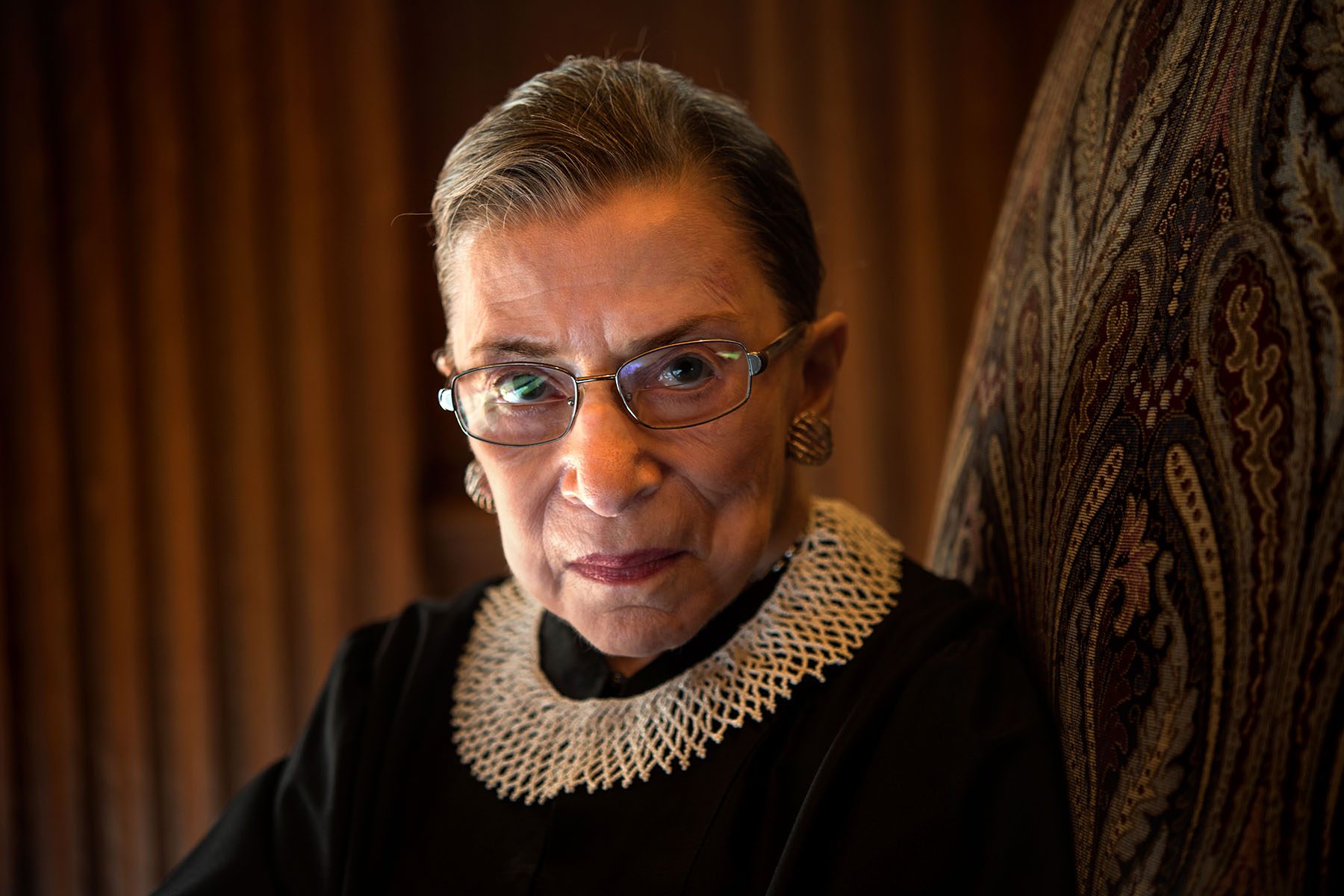Just eight days after the death of Justice Ruth Bader Ginsburg, who built her legal career arguing and then ruling on landmark cases that helped to usher in a freer and fairer society, President Donald Trump moved to replace her.
His pick, Amy Coney Barrett, a woman whose ideological record is opposite from Ginsburg’s, was confirmed just before the 2020 election. Her appointment gave conservatives the supermajority they had long fought for and galvanized many Democratic voters concerned about what Ginsburg’s loss on the court would mean for the future of women, people of color, the LGTBQ community and other marginalized groups.
Ginsburg’s death and Trump’s appointment of Barrett immediately reshaped the court — and the battle over abortion rights.
A year after her death, the issue now hangs on a knife’s edge. What happens next, with key cases in front of markedly different court, will have major effects on the country.
Irin Carmon, a Ginsburg biographer, said the impact of the justice’s absence has been “devastating.”
“We’ve seen an acceleration of a trend that has been decades in the making of the court rolling back progress for marginalized people,” said Carmon, a co-author of ‘The Notorious RBG.’ “That’s the tragedy of her death, in addition to the personal tragedy. I think a lot of the things that she predicted would happen, have happened. They’ve happened a lot faster because she’s not there.”
This month, the solidly conservative court declined to block a Texas law banning abortion after six weeks of pregnancy.
The future of the 50-year precedent will again be tested in the term that begins next month, when the high court is expected to hear a case challenging a Mississippi law that bans abortions after 15 weeks. Oral arguments in that case are scheduled for December 1.
Under Roe v. Wade, people are guaranteed abortion access up until a fetus can live independently outside the womb — which typically happens around 24 weeks. The absence of a national standard on abortion creates a scenario where states are left to set policy — potentially 50 interpretations of who can get an abortion when, and under what circumstances.
Mississippi petitioned for the Supreme Court to take up its 15-week abortion ban case in June 2020, prior to Ginsburg’s death, stressing the need to consider a fetus’ pain after 15 weeks of gestation. With Barrett on the court, the state filed a brief this July that reframed its argument to directly attack Roe and a subsequent 1992 case called Planned Parenthood v. Casey. The brief stated that the decisions upholding abortion in those cases are “egregiously wrong.”
-
More from The 19th
- The Supreme Court refused to block Texas’ abortion ban. Sonia Sotomayor says majority ‘opted to bury their heads in the sand’
- Amy Coney Barrett becomes the youngest woman to be a Supreme Court Justice
- These two women have potential to play outsized role in Virginia abortion rights
“They are making the prediction that the Supreme Court is more likely than it has been in the last 50 years to actually allow states to go maybe so far as banning all abortions outright,” said Kate Shaw, a constitutional law professor with Cardozo School of Law, adding that the newest justice’s conservative stance not only swayed the composition of the court further to the right, but also emboldened anti-abortion organizations and lawmakers to make more aggressive efforts to restict abortion.
Even if the court does not directly overturn Roe, there are ways it can continue to chip away at the law as it has done in other cases. The 1992 Casey decision upheld the constitutional right to abortion, but also paved the way for states to implement other restrictions, such as requiring pregnant people to wait anywhere from 18 hours to several days after their initial abortion consultation until they can receive the procedure.
Ginsburg’s absence is not only felt because of her voting record on the court but also her powerful dissents against a number of the court’s decisions.
“One thing she always did in her dissents in sex equality cases was to tell the stories of women, and she really understood sex discrimination and women, and that perspective may be absent,” said Elizabeth Sepper, a professor of law with The University of Texas at Austin.
Those opinions at times served as a roadmap for legislative change, Sepper said. One of the most notable examples happened in 2007 after the Supreme Court ruled 5-4 against Lilly Ledbetter’s lawsuit alleging pay discrimination. Ginsburg argued that “the court does not comprehend or is indifferent to the insidious way in which women can be victims of pay discriminations.” Ginsburg’s words and friendship motivated Ledbetter to continue her fight for equal pay, leading to the passage of the Lilly Ledbetter Fair Pay Act, the first piece of legislation signed into law by President Barack Obama in 2009.
In the past year, it has been Justice Sonia Sotomayor — a masterful dissenter in her own right and an ally of Ginsburg’s — who has increasingly filled the void in issuing scathing minority opinions in the past year.
During their time on the bench together, Sotomayor often deferred to Ginsburg to write the dissenting opinion on issues like abortion, while the first Latina justice weighed in on issues like police violence and voting rights. Now, as the senior woman on the court, her role has thrust her more into the spotlight, said Melissa Murray, a law professor at New York University who studies reproductive rights.
“She’s always been outspoken, certainly about things that impact her,” said Murray, who clerked for Sotomayor. “Now, she’s stepping in and doing it in a way that is really different from Justice Ginsburg. There are certain ways in which she echoes Ginsburg’s sensibilities, in terms of her concern for how laws will impact women on the ground, but there’s also an intersectional dimension to what she’s writing that I don’t think was as visible in Justice Ginsburg’s jurisprudence.”
What is lost is Ginsburg’s singular impact on the court as a once-in-a-lifetime transformative legal force, even in defeat, said Carmon.
“She is somebody who had an inimitable way of speaking to the public … She would put on that sparkly dissent collar because she wanted the public to pay attention, because she was sounding an alarm,” Carmon said. “We miss that she would have been drawing attention to the real life impact of these restrictions, and the broader affront to women’s dignity and equality.”






